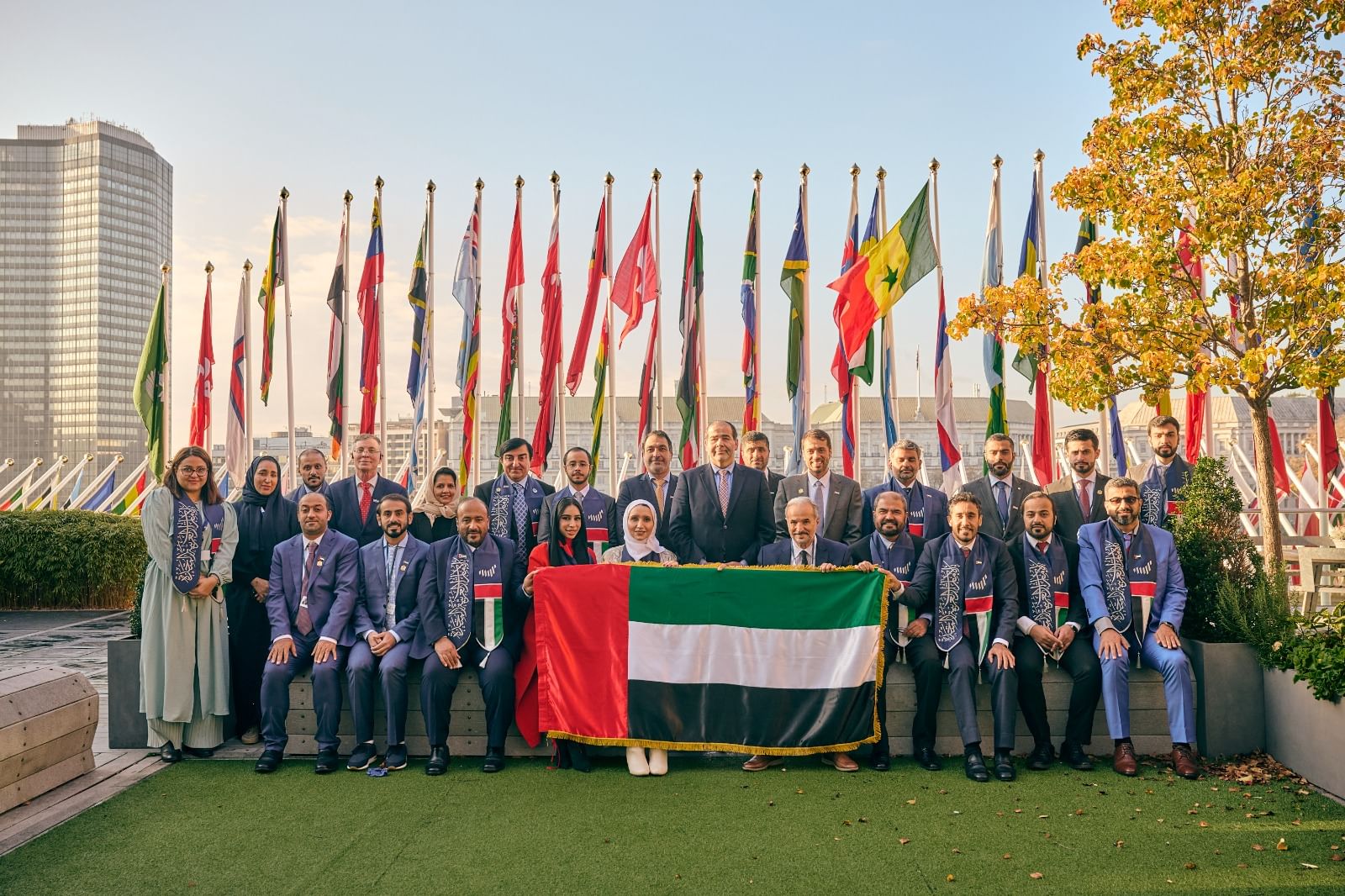LONDON, UK – The UAE has been re-elected to the Council of the International Maritime Organization (IMO) in the Category B membership for the fourth term with the highest number of votes, following comprehensive efforts and an intensive election campaign leading up to the elections.
Through its landmark initiatives, the country continues to play an active role in strengthening the national maritime sector while contributing to the growth of the global maritime and logistics industry.
The election results were announced on Saturday during the 33rd session of the IMO Assembly in London, which will conclude on December 7 2023.
On being re-elected, the UAE received international praise for its pivotal role in developing strategies, policies and legislation that enhance maritime safety standards, protect the marine environment and support the sustainability of the global industry.
Suhail Mohamed Al Mazrouei, Minister of Energy and Infrastructure, said, “The UAE has reaffirmed its leading status as a vital maritime center in the world with this achievement.”
He said, “Our re-election to the Council of the IMO for the fourth consecutive term has further strengthened our active role in developing the sector, enhancing maritime safety standards, and protecting the marine environment globally.”
He added, “Our efforts have ranked us as one of the most influential countries in developing a sustainable sector.”
Hassan Mohamed Juma Al-Mansoori, Undersecretary for the Infrastructure and Transport Sector at the Ministry of Energy and Infrastructure, said, “The UAE is, without doubt, a leader in the maritime world and has immensely contributed to the growth of global trade and shipping.”
He said that the UAE has made “major contributions to the industry by taking pioneering steps to protect and safeguard their interests.”
He added, “We have the world’s best infrastructure and technology deployed at our ports. Our strategic location has contributed to its position as a leading maritime trade hub in the Arabian Gulf states, East Africa and the Indian subcontinent.”
Al-Mansoori said, “All our ports are operated around the clock to facilitate maritime trade and keep the supply chains functioning. It is truly an honour to be re-elected to the Council owing to the hard work we and our industry partners in the country have put in.”
Hessa Al Malek, Advisor to the Minister for Maritime Transport Affairs at the Ministry of Energy and Infrastructure, said, “We have been at the forefront when it comes to women’s participation in the industry.”
She said, “We also contributed to drafting the IMO Assembly Resolution A.1147 (31) ‘Preserving the Legacy of the World Maritime Theme for 2019 and Achieving a Barrier-Free Working Environment for Women in the Maritime Sector’. All this has culminated in another milestone achievement for us.”
The UAE actively contributes to the IMO activities through its positive and effective engagement and participation in all the works of the Assembly, Council, main technical committees, sub-committees, and related working groups.
Mohammed Khamis Al Kaabi, UAE Permanent Representative at the IMO, stated, “In the vast expanse of global trade, shipping stands as the backbone, propelling nations towards prosperity and economic growth.”
He said, “The maritime sector faces a crossroads marked by the dual challenges of digitalization and the imperative to decarbonize in the face of climate change.”
He added, “Our commitment to embracing these challenges is evident in recent developments such as the Maritime Autonomous Surface Ships Code and the mandatory adoption of electronic data exchange within the maritime single window.”
Al Kaabi said, “These initiatives, coupled with the associated cyber risks, underscore the need for the International Maritime Organization to proactively integrate advancing technologies into its regulatory framework, thereby accelerating digitalisation in the maritime sector.”

